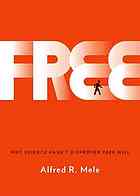

Most ebook files are in PDF format, so you can easily read them using various software such as Foxit Reader or directly on the Google Chrome browser.
Some ebook files are released by publishers in other formats such as .awz, .mobi, .epub, .fb2, etc. You may need to install specific software to read these formats on mobile/PC, such as Calibre.
Please read the tutorial at this link: https://ebookbell.com/faq
We offer FREE conversion to the popular formats you request; however, this may take some time. Therefore, right after payment, please email us, and we will try to provide the service as quickly as possible.
For some exceptional file formats or broken links (if any), please refrain from opening any disputes. Instead, email us first, and we will try to assist within a maximum of 6 hours.
EbookBell Team

4.0
86 reviews"Scientists have forged a penetrating, coherent course in the study of human thought and action. Yet some of the same scientists have slashed out an adjacent, rough-hewn path, cutting at the roots of the belief in free will and at the groundwork of relationships among the conscious will, the mind, and the brain. Claiming to disprove the existence of free will is not only wrongheaded, Mele argues, but harmful; research shows that people who don't believe they are free are more likely to behave badly, as they sink into feeling like they aren't responsible for their actions. Putting a positive spin on this, Mele conveys what he calls the 'good news' that we are freer than we think. If we see ourselves as morally responsible for our future actions, we can begin to view ourselves as having abilities and capacities that give us considerable control over what we do. Mele takes apart the findings of neuroscience and psychology experiments often cited as irrefutably disproving the existence of free will, for example those of Benjamin Libet, and demonstrates that their results have been misinterpreted. Mele explains why the experimental findings are actually consistent with our making many of our decisions consciously and with our having considerable control over many of our decisions and actions. In order to find truth and clarity on this crucial topic, Mele argues, philosophers, scientists, and psychologists alike need to explore one another's work rather than relying on scientific findings - and a rigid interpretation of those findings- as the only key to solving the complex puzzle that is free will"--
"Scientists have forged a penetrating, coherent course in the study of human thought and action. Yet some of the same scientists have slashed out an adjacent, rough-hewn path, cutting at the roots of the belief in free will and at the groundwork of relationships among the conscious will, the mind, and the brain. Claiming to disprove the existence of free will is not only wrongheaded, Mele argues, but harmful; research shows that people who don't believe they are free are more likely to behave badly, as they sink into feeling like they aren't responsible for their actions. Putting a positive spin on this, Mele conveys what he calls the 'good news' that we are freer than we think. If we see ourselves as morally responsible for our future actions, we can begin to view ourselves as having abilities and capacities that give us considerable control over what we do. Mele takes apart the findings of neuroscience and psychology experiments often cited as irrefutably disproving the existence of free will, for example those of Benjamin Libet, and demonstrates that their results have been misinterpreted. Mele explains why the experimental findings are actually consistent with our making many of our decisions consciously and with our having considerable control over many of our decisions and actions. In order to find truth and clarity on this crucial topic, Mele argues, philosophers, scientists, and psychologists alike need to explore one another's work rather than relying on scientific findings - and a rigid interpretation of those findings- as the only key to solving the complex puzzle that is free will"